Sometimes you can judge a book by its cover. The image under the title of Nassim Nicholas Taleb’s new book, Skin in the Game: Hidden Asymmetries in Daily Life, presents the would-be reader with a barbell holding large weights on one side and smaller weights on the other. The mixed metaphor (one might expect to see a reference to skin and/or a game) sets the tone for an uneven book that’s heavy on personal attacks and vendettas but light on substance.
Taleb achieved authorial fame with 2008’s Black Swan, and followed that work with Antifragile in 2012. The first book showed how models based on predictive analytics can fail dramatically when unlikely events occur that crash the system. It became popular in no small part because of the financial crisis in the housing sector that occurred the same year. It’s not clear what the connection was, though, since the housing crash came as a result of consistent flaws in the lending system and not as a singular unlikely event. Antifragile put forth the thesis that universities exist to formalize ideas and processes that actually evolved in the wild where real people work.
Skin in the Game stems from these books. Taleb’s new thesis is that people who make decisions and predictions should share in the pain and/or rewards that come as an outcome of those decisions. In the Introduction, he writes “If you have the rewards, you must also get some of the risks, not let others pay the price of your mistakes. If you inflict risk on others, and they are harmed, you need to pay some price for it. Just as you should treat others the way you’d like to be treated, you would like to share the responsibility for events without unfairness and inequity” (p. 4).
First of all, does it ever occur to anyone that the entire notion of “treating others the way you’d like to be treated” caused the entire #metoo movement? Certainly, powerful men who send inappropriate pictures of their anatomy to women are doing something they would like to have done unto them. Secondly, what does “some price” mean in regard to risk inflicted upon others? Should a high school football coach who risks the lifetime cognitive function of young men be forced to suffer concussive blows himself, or is losing the game enough of a price? Just how much skin should a person in a position of power actually have in the game?
This question comes up with Taleb’s first attempt to buttress his argument with history. He writes “Prominent people took risks—considerably more risks than ordinary citizens. The Roman Emperor Julian the Apostate…died on the battlefield fighting in the never-ending war on the Persian frontier—while emperor” (p. 11). Is this impressive? By analogy, should Lincoln have taken up a rifle at Gettysburg? Should surgeons stand ready to suffer the same physical consequences as their patients if something goes wrong? We know what asymmetry is, but what does symmetry look like?
Taleb offers no answers to this question because the book is a thin premise for him to infuse a bunch of unconnected thoughts into your brain. By page 22, we are treated to Taleb the alpha-male life coach. He quotes a take-no-baloney fictional character he has invented with “Start by being nice to every person you meet. But if someone tries to exercise power over you, exercise power over him.” Other than the fact that such guidance would disqualify a person from nearly every job and human relationship, this is sound advice.
Then book reviewers get the metaphorical knuckle sandwich because “someone has to have read the book to notice that the reviewer is full of baloney, so in the absence of skin in the game, reviewers such as Michiko Kakutani of the New York Times (now retired) or David Runciman, who writes for The Guardian, can go on forever without anyone knowing they are either fabricating or drunk” (p.44). (Forgive me for demurring here, but we book reviewers are a nervous people, prone to paleness and coughing fits; we are hardly suited for fighting back.)
Then we get Taleb the anti-evolutionist: “The main idea behind complex systems is that the ensemble behaves in ways not predicted by its components…. Studying individual ants will almost never give us a clear indication of how the ant colony operates. For that, one needs to understand an ant colony as an ant colony, no less, no more, not a collection of ants” (p. 69). Not really. Evolutionary pressures act on ants, not on colonies. The colony helps ants to survive more than viceversa and the interactions are meaningless unless they benefit individual genes.
At times, the “skin in the game” phrase takes on a Jeff Foxworthy “you might be a redneck” tone as it’s used to add emphasis to sentiments, such as “If I wanted to lower taxes for myself, and I do, I am obligated to fight for it, for both myself and the collective, other taxpayers, and to not run away. Skin in the game” (p.37). Whether the statement makes sense or not, really isn’t important. One is not invited to ask whether lower taxes really benefits the collective or not. We are not really asked to read this book so much as we are asked to marvel at Taleb’s bluster and machismo.
Mostly, we get Taleb the belittler. He humiliates working people: “Evidence of submission is displayed by the employee’s going through years depriving himself of his personal freedom for nine hours every day, his ritualistic and punctual arrival at an office, his denying himself his own schedule, and his not having beaten up anyone on the way back home after a bad day. He is an obedient, housebroken dog” (p. 98). I would like to stand up for people with jobs and self-control, but I must admit I’m still nursing my wounds from the comments about book reviewers.
He builds up caricatures like the “Intellectual Yet Idiot” (IYI) someone who “…joins a club to get travel privileges; if he is a social scientist, he uses statistics without knowing how they are derived (like Steven Pinker and psycholophasters in general); when in the United Kingdom, he goes to literary festivals and eats cucumber sandwiches, taking small bites at a time… ” (p.126). Hey now! That’s going too far; what’s wrong with cucumber sandwiches, books, and chewing that’s respectful of the digestive system?
Taleb might not like working people, taxes, academics, or bureaucrats, but it’s Steven Pinker who really gets him rolling his sleeves up. According to Taleb, Pinker misuses data tables (in addition, one presumes, to enjoying the occasional nibble of a cucumber sandwich) and Taleb really lets Pinker have it:
[T]he science journalist Steven Pinker played that trick with his book The Better Angels of Our Nature, which claims a decline of violence in modern history, and attributes this to modern institutions. My collaborator Pasquale Cirillo and I, when we put this “data” under scrutiny, found out that either he didn’t understand his own numbers (actually, he didn’t), or he had a story in mind and kept adding charts, not realizing that statistics isn’t about data but distillation, rigor, and avoiding being fooled by randomness—but no matter, the general public and his state-worshipping IYI colleagues found it impressive (for a while) (p.138).
For those of us who consider Pinker’s book a worthy candidate for the western canon, it seems a bit much to paint Pinker with the implied vulgarity of “science journalist,” and we might even ask for a more thorough explanation of what Pinker got wrong. The point of this section of the book is not to provide a real skeptical analysis of Pinker’s work, but to deride Pinker as an IYI. And Taleb hates the IYI, mostly because, as he wrote in an earlier passage “…he doesn’t even deadlift” (p. 127).
Ah, here we have found the source of the weights that form half of the mixed metaphor on the cover. Taleb thinks that people who do not look the part of their jobs, are actually more likely to be successful because they’ve had to cut through the B.S. of social interactions and public expectations. Educational attainment is B.S., academic credentials likewise, everybody else is weak and stupid and gyms should not look like gyms because all those fancy machines just dupe people into paying money while “…the simpler barbell (a metal bar with two weights on both ends) is the only standard piece of equipment that gets you to recruit your entire body for exercises—and it’s the simplest and cheapest to get.” (p.166).
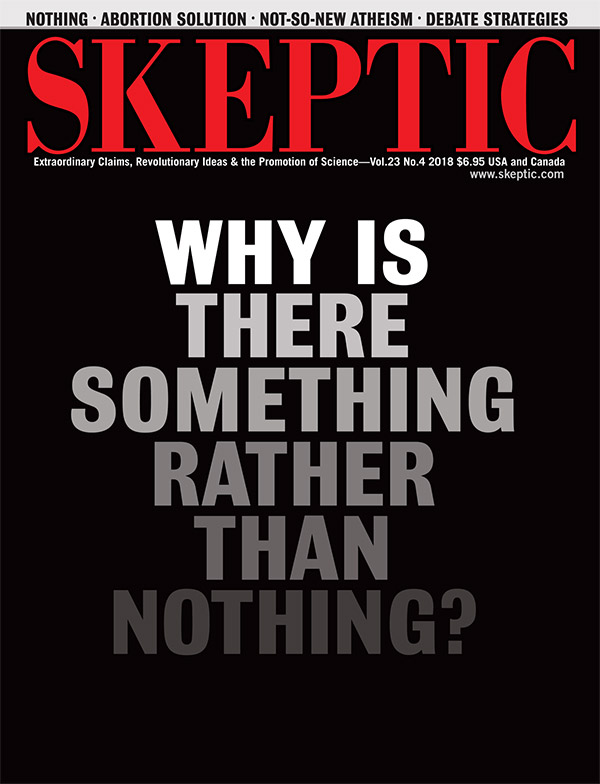
This article appeared in Skeptic magazine 23.4
Buy print edition
Buy digital edition
Subscribe to print edition
Subscribe to digital edition
At this point in the book, I more than got Taleb’s main argument. People should share in the risk that they impose on others so that learning through mistakes can occur. When those in power don’t suffer consequences through having skin in the game, they cannot learn. Curious about the man, I typed his name into Google images. Sure enough, there was Taleb, gripping a barbell in a gym. If you can sometimes judge a book by its cover then you can sometimes judge an author by his picture. The thing is, for a man so critical of everyone else, Taleb’s not really lifting all that much weight. ![]()
About the Author
Dr. Chris Edwards is a frequent contributor to Skeptic and the author of several books including Insights on Insincerity: How to Enhance the Classroom Experience and the young adult biography All About Stephen Hawking. He teaches World History, AP World History, and English at a public high school in the Midwest and directs a summer institute for math and science teachers.
This article was published on July 9, 2019.


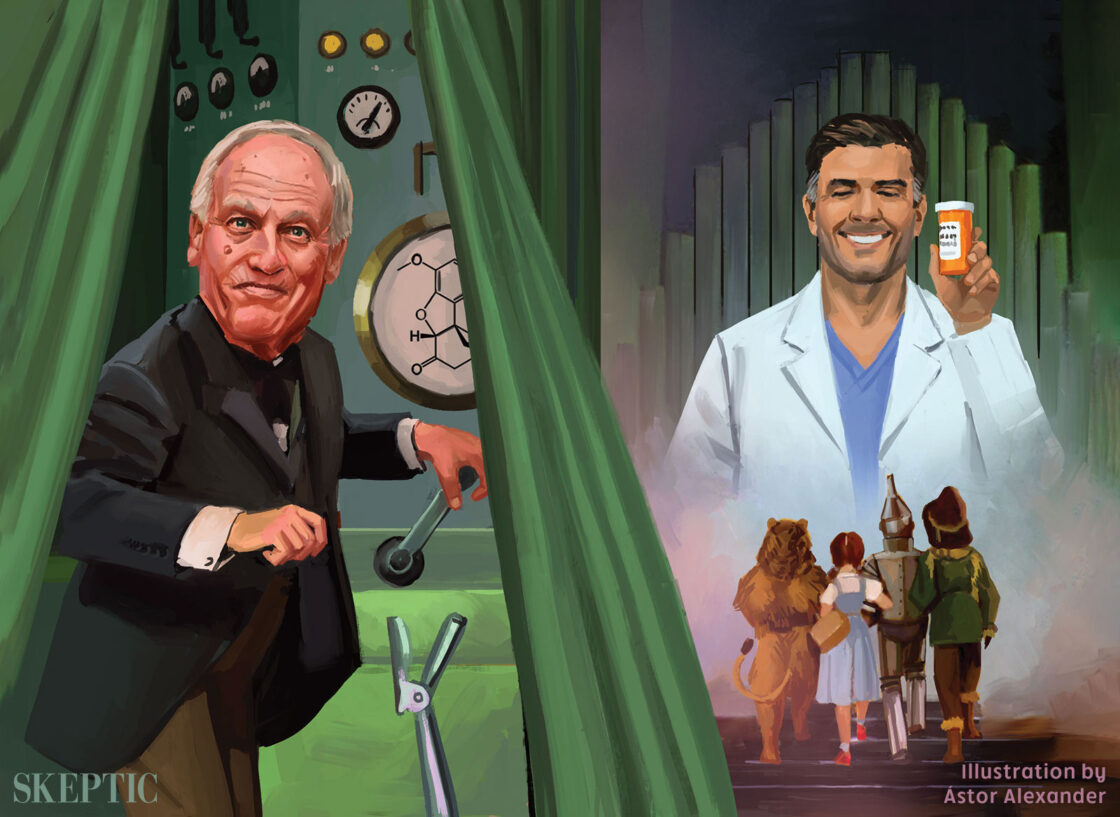

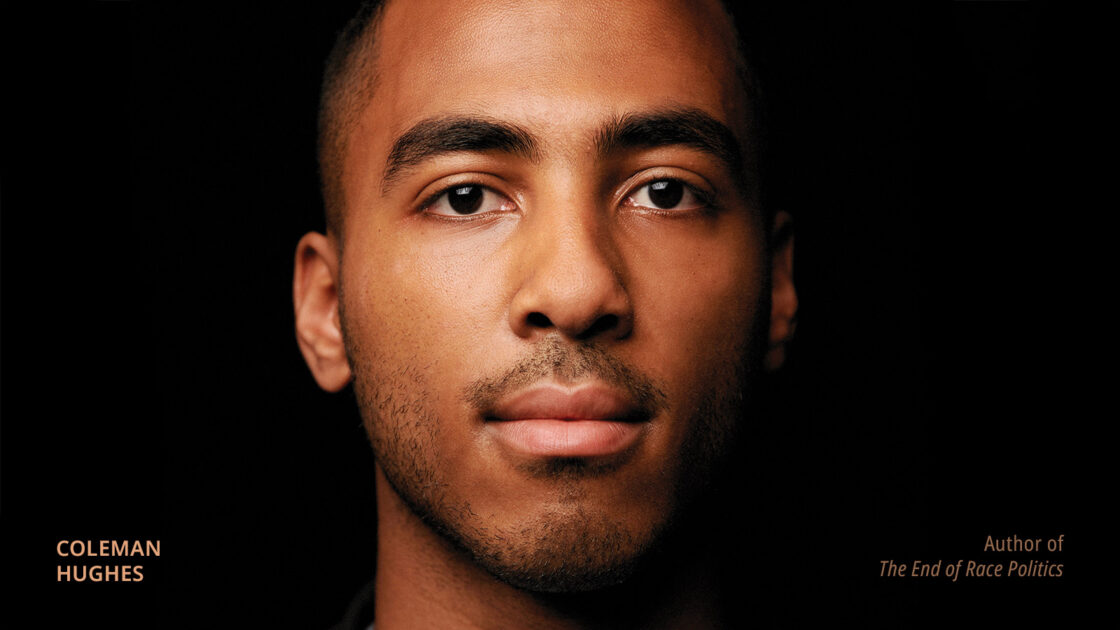

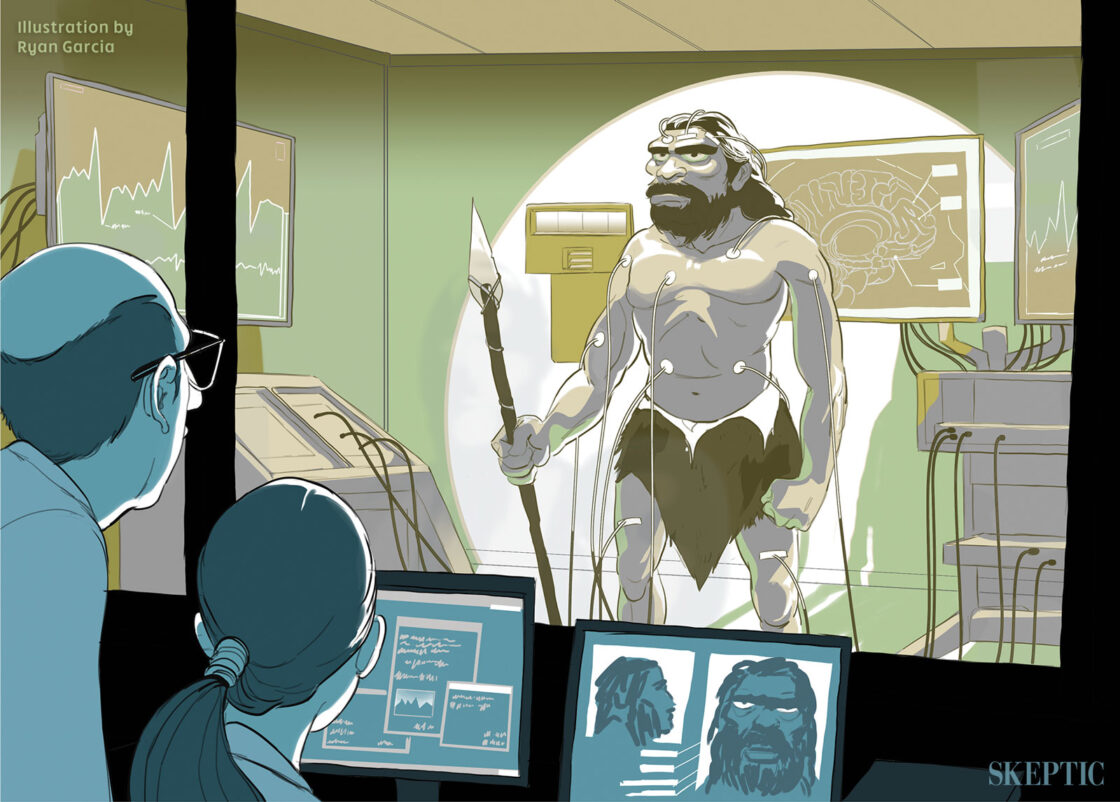

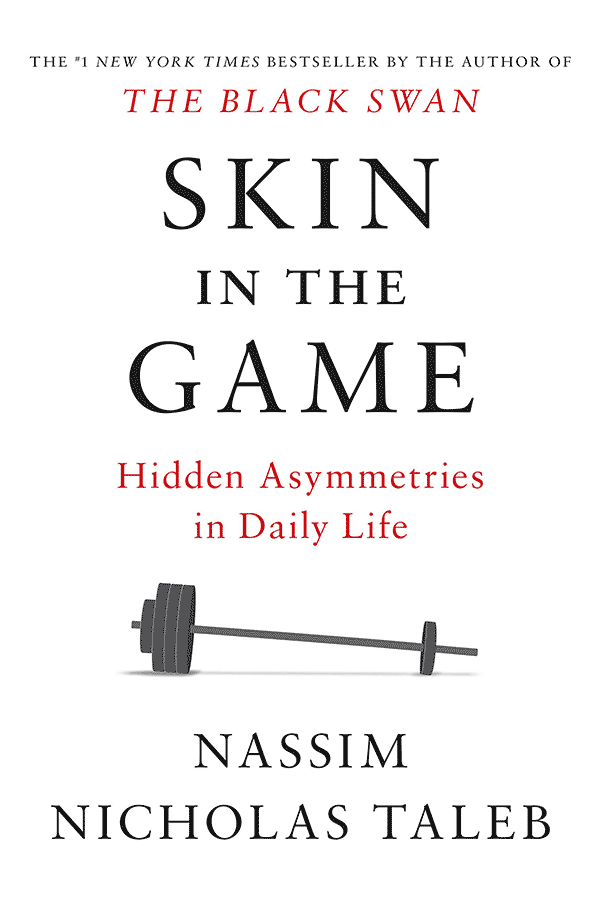










As a working stiff, I was quite offended at being called a whipped, domesticated dog. I’d like to see how well Taleb would do if we all downed tools and let him try to live his heroic entrepreneurial life without electricity, running water, or his barista.
Superb review. Well done.
When I read Antifragile, I enjoyed the scattergun of Taleb’s ideas, while greatly disliking his bombastic, resentful and pointless diatribes. Sadly, I wondered for a time if his style reflected some generic street level feistiness derived from Middle Eastern culture – an attitude that I challenge for myself, with examples of Middle Eastern kindness and graciousness.
Like Patrick Stirling, I disagree with the dismissal of a system view of ant hills. I think multi-level selection is a thing, even if it leads to ambiguities about how one level is to be distinguished from another, or what qualifies as a level. Besides, in an ant colony, if I’ve got this right, all the genes issue from a queen and one or a few individuals who inseminate her, so deaths of individual workers are actually not quite directly relevant to the survival of genes, even though the work of those ants is relevant to the “fitness” of the colony.
Still, I’m glad to see someone challenging Taleb’s nasty and scattered style, and standing up for Pinker.
Taleb is always a bit of an ass.
But if there is a need for a book asking if risk is unevenly shared by the haves and have-nots, it is now.
Perhaps he got lucky in the timing of The Black Swan. Perhaps he is lucky in the timing of this one.
It’s certainly important enough to acknowledge and address.
I also agree with the previous comments.
Carry on…
Wow, I could not get through this review! It reads more as an ad hominem attack than a review of an actual book. Edwards really seems to have it in for Taleb.
Further, there are couple of statements I really disagree with, which throw the rest of the review into doubt.
First, his statement “the entire notion of “treating others the way you’d like to be treated” caused the entire #metoo movement? Certainly, powerful men who send inappropriate pictures of their anatomy to women are doing something they would like to have done unto them”. This is facile, perhaps wilfully so. It completely misses the real issue here. The metoo movement is about men sexually harrassing women in general, and as anyone who’s studied this at all know, it’s about power and control and usually has little to do with sex. The problem is not the photos, it’s the inappropriateness of it, and the exercise of power and humiliation.
Secondly Edwards’ comment on evolution. Quote: “Evolutionary pressures act on ants, not on colonies. The colony helps ants to survive more than viceversa and the interactions are meaningless unless they benefit individual genes.” I don’t think you should make a sweeping statement like this without backing it up. I think eusocial colonies (ants, bees, etc) are effected by evolutionary pressures. A random change to the genes of an ant might well have a beneficial effect on the colony, but not on the ant itself. Edwards is just wrong here. A book review needs to judge the book on its own merits, not just belittle the author.
Finally, I rather like the cover image of an unbalanced bar; our society is full of hidden biases. Just look at the case of Jeffrey Epstein that just now coming to light. That sort of preferential treatment has been around for as long as there have been human societies.